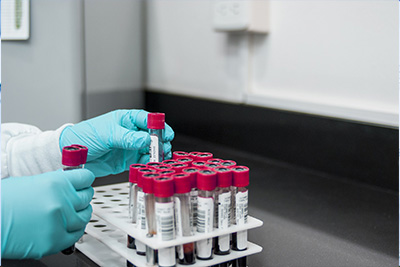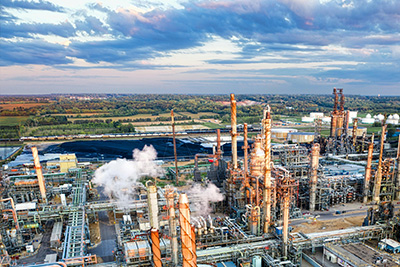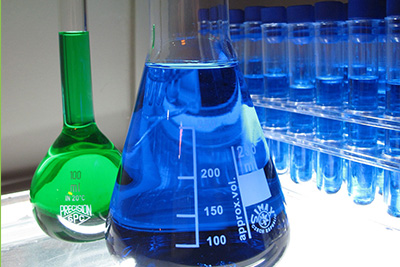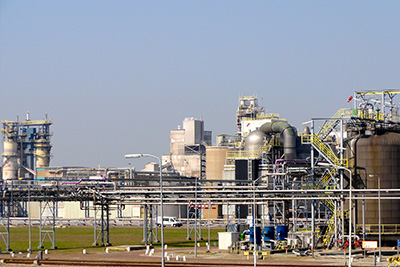-
![Regulatory Standar···]() 2024-11-20 Regulatory Standards for Methyltin M···
2024-11-20 Regulatory Standards for Methyltin M···The article examines the regulatory standards governing methyltin mercaptide in industrial applications, focusing on safety measures, compliance requirements, and future trends. Methyltin mercaptide is widely used in various industries due to its unique properties, but its usage is subject to strict regulations aimed at ensuring worker safety and environmental protection. The paper reviews existing safety protocols and compliance guidelines, highlighting the need for continuous monitoring and updates. Additionally, it explores emerging trends that may influence future standards, emphasizing the importance of international cooperation in setting and enforcing these regulations.
read more > -
![Understanding the ···]() 2024-11-20 Understanding the Mechanisms of Meth···
2024-11-20 Understanding the Mechanisms of Meth···The article investigates the interaction between methyltin mercaptides and polyvinyl chloride (PVC), focusing on its impact on the thermal decomposition process. Through detailed analysis, it reveals how these compounds alter the degradation behavior of PVC under heat, providing insights into the underlying mechanisms. This study is crucial for optimizing the use of tin-based stabilizers in PVC applications, enhancing material stability and performance.
read more > -
![Chemical Structure···]() 2024-11-20 Chemical Structure and Properties of···
2024-11-20 Chemical Structure and Properties of···The chemical structure and properties of methyltin mercaptide were investigated to assess its potential industrial applications, particularly in polyvinyl chloride (PVC) stabilization. This compound features a unique tin-mercaptide bond that enhances its thermal stability and compatibility with PVC matrices. Its molecular configuration allows for effective scavenging of hydrogen chloride (HCl) released during the thermal degradation of PVC, thus preventing discoloration and degradation. The study reveals that methyltin mercaptide exhibits superior performance compared to conventional stabilizers, making it a promising candidate for enhancing the durability and lifespan of PVC materials in various industrial applications.
read more > -
![Optimizing Methylt···]() 2024-11-20 Optimizing Methyltin Mercaptide Dosa···
2024-11-20 Optimizing Methyltin Mercaptide Dosa···This study focuses on optimizing the dosage of methyltin mercaptide to enhance the thermal stability of both rigid and flexible PVC applications. Through systematic experimentation and analysis, the research identifies the most effective concentrations that minimize degradation and maintain mechanical properties under high temperatures. The findings provide industry professionals with valuable guidelines to improve product quality and extend service life, ultimately contributing to more sustainable manufacturing processes.
read more > -
![Advancements in Me···]() 2024-11-20 Advancements in Methyltin Mercaptide···
2024-11-20 Advancements in Methyltin Mercaptide···Recent developments in the synthesis of methyltin mercaptides have led to the discovery of new methods that significantly enhance the purity and performance of these compounds. These advancements involve optimizing reaction conditions and purification techniques, resulting in higher yields and reduced impurities. The improved synthesis process not only increases the overall efficiency but also broadens the potential applications of methyltin mercaptides in various industrial fields.
read more > -
![Environmental Impa···]() 2024-11-19 Environmental Impact Assessment of M···
2024-11-19 Environmental Impact Assessment of M···The environmental impact assessment of methyltin mercaptide covers its degradation pathways, bioaccumulation potential, and proposes mitigation strategies. Studies indicate that while it can degrade under specific conditions, concerns remain about its bioaccumulation in aquatic ecosystems. To address these issues, the report suggests implementing stricter regulations on its use, promoting alternative compounds, and enhancing bioremediation techniques to minimize ecological risks.
read more > -
![Comparative Analys···]() 2024-11-19 Comparative Analysis of Methyltin Me···
2024-11-19 Comparative Analysis of Methyltin Me···This study conducts a comparative analysis of methyltin mercaptide and other organotin compounds in polymer stabilization. The research evaluates the efficacy, environmental impact, and economic aspects of using methyltin mercaptide versus traditional organotin stabilizers such as dibutyltin and dioctyltin compounds. Results indicate that methyltin mercaptide offers superior thermal stability and lower toxicity, making it a more environmentally friendly option. However, cost implications and specific application requirements also influence its adoption in industrial polymer processing. Overall, the analysis suggests methyltin mercaptide as a promising alternative with balanced performance and sustainability benefits.
read more > -
![The Role of Methyl···]() 2024-11-19 The Role of Methyltin Mercaptide as ···
2024-11-19 The Role of Methyltin Mercaptide as ···This study explores the role of methyltin mercaptide as a heat stabilizer in the manufacturing of polyvinyl chloride (PVC). It delves into the mechanisms through which methyltin mercaptide functions to prevent thermal degradation during processing. The research evaluates the efficiency of this stabilizer by comparing it with other common additives, analyzing its impact on the thermal stability, color retention, and overall quality of PVC products. The findings highlight the superior performance of methyltin mercaptide in maintaining PVC's properties under high-temperature conditions, thus offering valuable insights for optimizing PVC production processes.
read more > -
![The Upstream Proce···]() 2024-11-19 The Upstream Process of Butyltin Man···
2024-11-19 The Upstream Process of Butyltin Man···The upstream process for butyltin manufacturing in advanced PVC applications involves the synthesis of organotin compounds, primarily through the reaction of metallic tin with butyl halides. This process typically occurs in specialized reactors to ensure controlled conditions, optimizing yield and purity. Key intermediates include tributyltin compounds, which are crucial for enhancing the thermal stability, weatherability, and mechanical properties of PVC materials. The production also requires strict safety measures due to the toxic nature of butyltins. Overall, this process is fundamental in producing additives that significantly improve the performance of PVC in various industrial applications.
read more >










